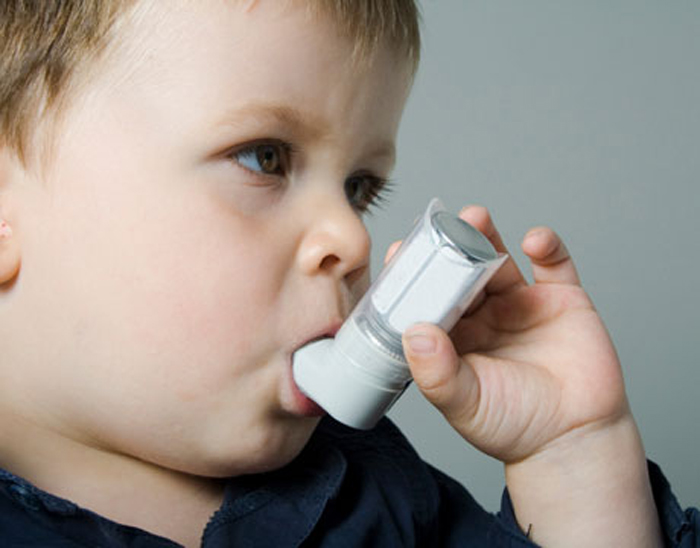Now they`ll have to check the idea in many more children, but it could help explain why some kids get asthma and some do not.
"This research supports the hygiene hypothesis that we`re making our environment too clean. It shows that gut bacteria play a role in asthma, but it is early in life when the baby`s immune system is being established," said Brett Finlay of the University of British Columbia in Canada, who worked on the study.
The team has been intensively studying 319 Canadian babies, including a deep dive into the germs found in their intestines when they were three months old and then a year old. It`s easy enough to do with a poop sample.
They singled out children considered at high risk of asthma, based on whether they wheezed and also assessed using allergy tests.
Four groups of bacteria were missing in 22 of the children at high risk of asthma when they were three months old, the researchers report in this week`s issue of Science Translational Medicine. They include the genus Faecalibacterium, the genus Lachnospira, as well as Veillonella and Rothia. (The genus is the first name in two-name identification — in the name Escherichia coli, Escherechia is the genus name and coli is the species name.)
"They all had lower or non-detectable levels of those four. The rest all had higher levels," Finlay told reporters.
Researchers now know that the bacteria, fungi and yeast living in an on our bodies, called the microbiome, are extremely important to health. They can affect the body`s susceptibility to infection, they can affect body weight and may even play a role in cancer.
Every adult carries pounds of these microorganisms. They break down food, prevent infections and extract nutrients like vitamin K for us. Microbes outnumber human cells by a factor of at least 10 to one and scientists believe at least 10,000 different species live in and on us.
Babies are born almost sterile and they get the germs that will live with and on them from their mothers, their first meals, and their early handling and environment. But mostly, they get germs from their mothers.
"These findings emphasize the importance of the early, maternally transmitted microbiome in health," Maria Gloria Dominguez-Bello and Martin Blaser of New York University wrote in a commentary on the paper.
"The microbiota cover the baby`s skin and are in the mouth, so that the baby`s first suckling inoculates the breast with microbes that then might flourish there."
The gut bacteria are linked to immune system function, also. And the digestive tract is an important front in the body`s immune system — something that makes sense, since animals take in many germs through food. The very first bacteria that show up in the digestive tract may influence how it develops.
It`s not clear why the 22 babies were missing the four bacteria types, or whether having them actually lowers the risk of asthma. By the time the babies were a year old, the differences in the makeup of their gut bacteria had disappeared.
The researchers are now looking at which babies got antibiotics and what types, whether they were born by Cesarian section and they`re watching to see which babies do eventually develop asthma, Dr. Marie-Claire Arrieta of the University of British Columbia said.
They`re also looking at whether breastfeeding transmits the four key bacterial types. "There are a number of ways that they could be acquiring these bacteria," she said.
"The data absolutely suggests that antibiotics, and particularly multiple courses of antibiotics early in life, are associated with an increased risk of asthma," Dr. Stuart Turvey of British Columbia BC Children`s Hospital, who also worked on the study, told reporters.
"This discovery gives us new potential ways to prevent this disease that is life-threatening for many children. It shows there`s a short, maybe 100-day window for giving babies therapeutic interventions to protect against asthma," he added.
"When does the window open and when does it close? How can we recognize problems early enough to intervene? Stay tuned," Blaser and Bello added.
More about:
















































